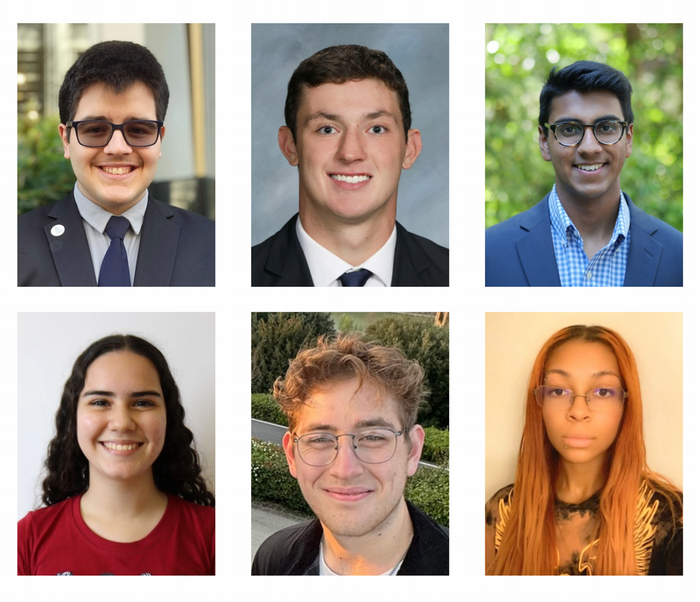Treating Tourette's Syndrome through Mindfulness and Meditation
By Tom Porter
Reese, a clinical psychologist, has been researching ways to treat Tourette Syndrome and persistent tic disorders (known collectively as TS) for much of her career and for the past thirteen years has been testing ways of using mindfulness and meditation techniques to help those with the condition.
Reese’s efforts were recently rewarded with a multimillion dollar grant from the National Institutes of Health enabling her, working with colleagues at Johns Hopkins University, to conduct a five-year clinical trial comparing her methods with other, more established techniques, all of them non-medicinal.
What is TS? It’s important, said Reese, to distinguish TS from similar behaviors that could be mistaken for Tourette’s, such as stuttering, tics induced by some kind of trauma in later life, or the recent proliferation of so-called “TikTok tics,” where (mostly) teenagers have acquired involuntary twitches after witnessing others behave like that on social media platforms.
“These behaviors may look the same, but TS is quite a different animal,” said Reese. “TS is a neurodevelopmental disorder, which first appears in childhood, typically between the ages of five and seven,” she explained. “It’s caused by abnormalities in the parts of the brain that help plan, coordinate, and inhibit motor movements.” TS is characterized by motor and vocal tics, which can be quite impairing and disabling, said Reese. “Most people with tics also have what we call a premonitory urge, which is like this discomfort, this feeling of pressure and tension that can be alleviated by the tic.”
TS varies a lot in severity, she explained, so some people may have a few subtle tics, maybe eye blinking or throat clearing, and it really doesn't impact their life very much. “Then you have some folks who are really quite severe, with frequent, intense, and complex tics, which can make it difficult to maintain a job and can lead to social ostracism. Furthermore,” she added, ”TS sufferers are also often prone to conditions like obsessive compulsive disorder, anxiety, and ADHD.”
"We hope that participants will become more aware of the moment-by-moment experience of their urges and tics and develop the capacity to relate differently to those urges and allow them to dissipate on their own without engaging in the tic.” Hannah Reese.
How can you treat it? There's a range of different treatments available, including both medication and psychotherapy, said Reese, “but so far it’s been hard to provide really sufficient symptomatic relief, while the medication treatments, especially, have a number of really unpleasant side effects.”
Although TS has a strong biological basis, she added, tics are heavily influenced by the emotional state that sufferers are in and the stress they might be experiencing in certain environments. For this reason, practitioners tend to favor behavioral treatments as a first option.
Reese’s treatment is a type of psychotherapy program that utilizes mindfulness and meditation, something she practices herself and has tested in two previous trials over the previous thirteen years. This particular trial, however, is significantly bigger, she explained.
“The intervention lasts eight weeks and takes place online in groups of five to eight people, plus a therapist. Participants start by learning the fundamentals of how to meditate and practice mindfulness. By week three, they begin applying those foundational practices to their TS symptoms. In doing this, we hope that participants will become more aware of the moment-by-moment experience of their urges and tics and develop the capacity to relate differently to those urges and allow them to dissipate on their own without engaging in the tic.”
Reese said it’s important to remember that mindfulness training is also about building compassion and kindness toward yourself. “So, we also help participants notice and change any negative attitudes or beliefs that they might have about themselves as a result of having tics. Past experience also tells me that this program is a great way for people with TS to meet others with similar experiences—something they typically don’t get to do—and lasting connections can be formed in some cases.”
Since the award* (which is worth $2,791,682 over five years) was announced in the summer, Reese, her co-project leader, Joseph McGuire from Johns Hopkins University, and her collaborator, W. Alan Brown, a mindfulness educator who also has Tourette Syndrome, have started preparing a training manual and recruiting counselors, all clinical psychologists, to lead the intervention. The study is set to open for participation in February 2024.
“The trial will compare this mindfulness-based intervention to another, more traditional type of psychotherapy, so we can see which offers more benefit,” said Reese.
*NIH project number: 1R01AT012455-01



